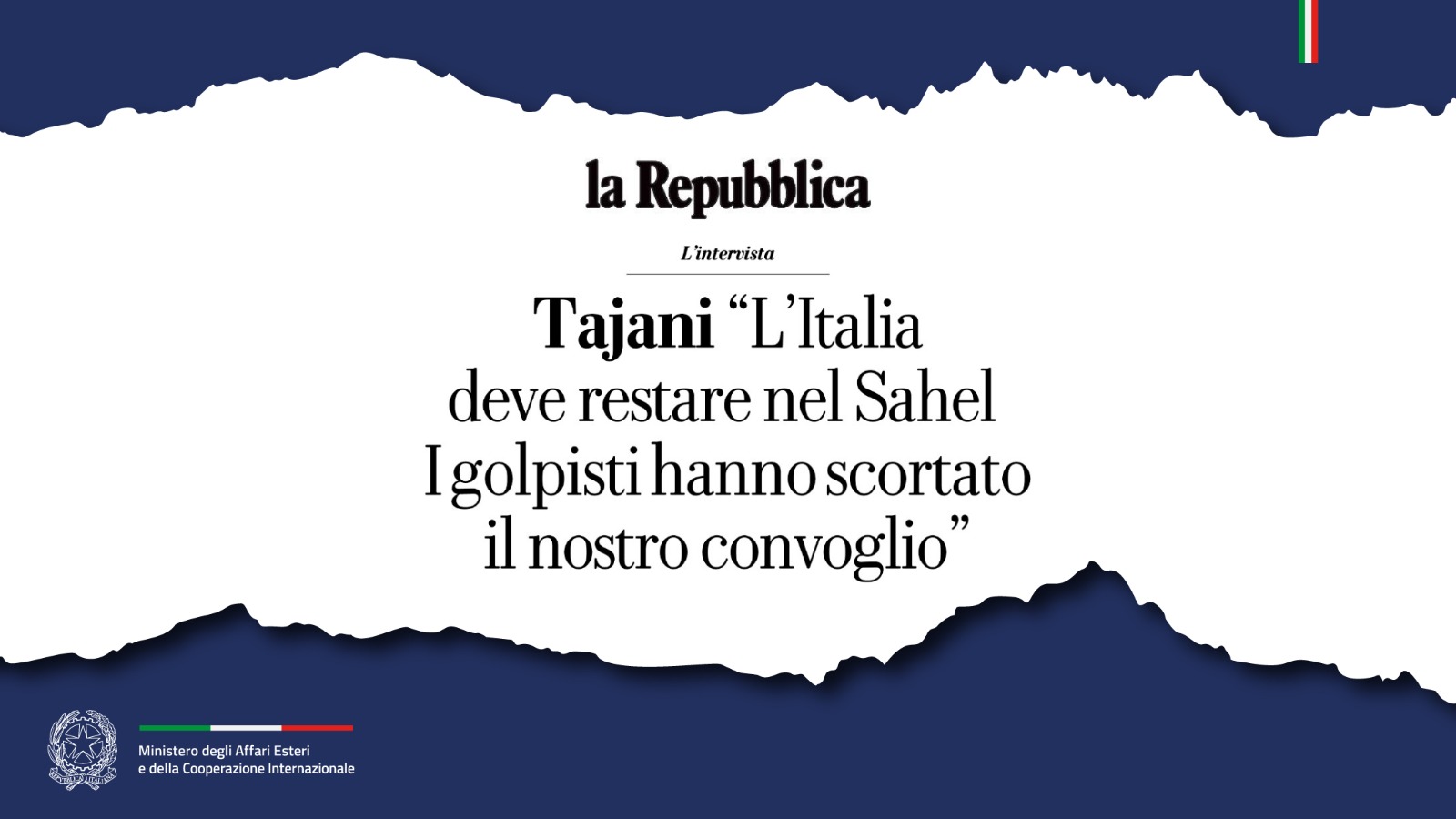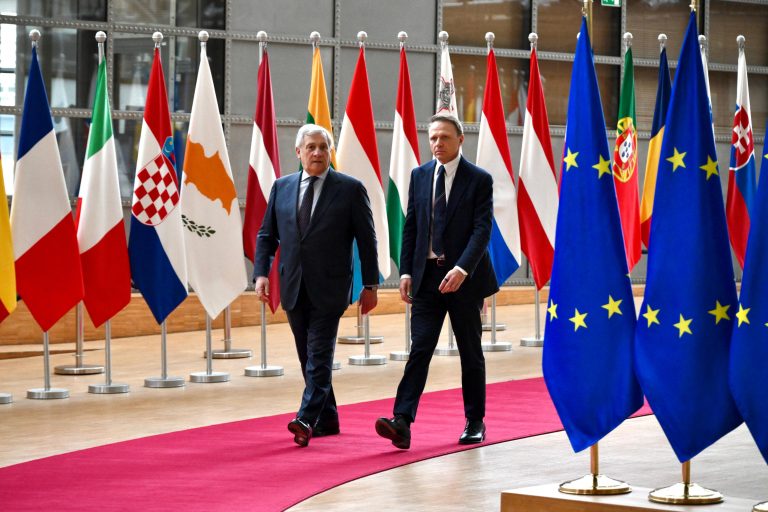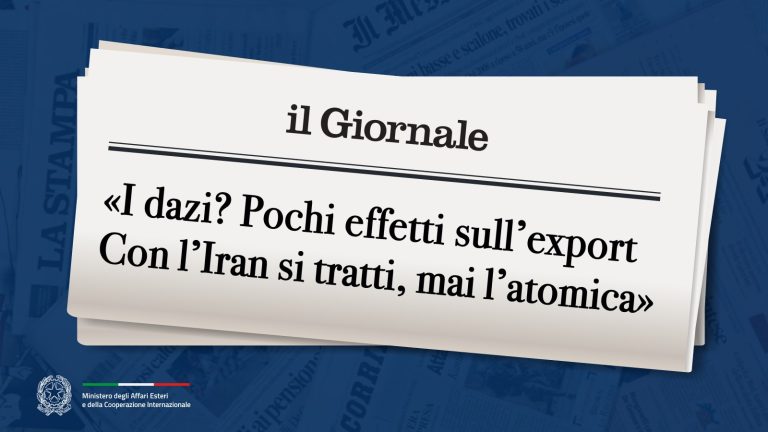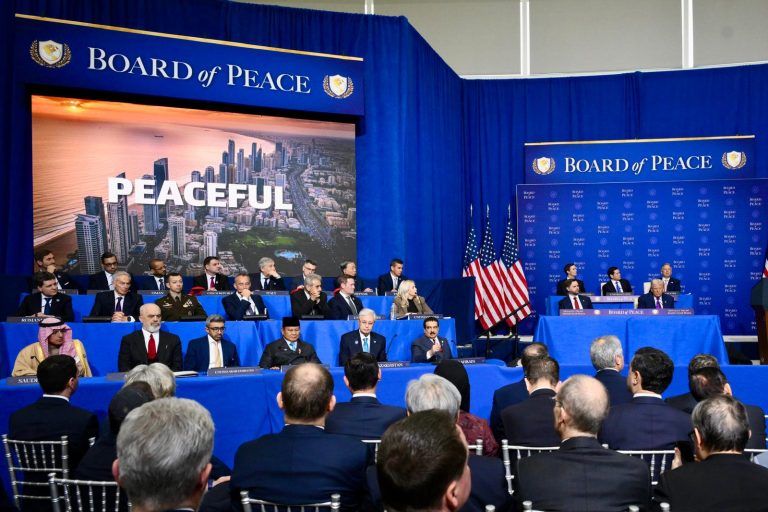The Ministry of Foreign Affairs, Antonio Tajani, had spent some agitated hours before giving this interview. Yesterday, at 4 in the morning, he welcomed the first repatriation flight of Italian citizens from Niger, and he is now getting prepared for today’s tense day. It is the anniversary of the Niger independence, and protests are expected while the coup leaders hold to their positions. Nonetheless, Italy will continue to be present. “Italy is not their target”, he guarantees.
Minister Tajani, what is the situation on the ground in Niger? Is an agreement between the coup leaders and Ecowas possible, or will there be a clash? Today, Niger celebrates the anniversary of its independence: what concerns does this raise?
“The situation is evolving. We favour any diplomatic attempt for the parties to find an agreement; that is why our Embassy in Niamey is still open, and our ambassador is back to work. Democracy must be reinstated. However, we seek peaceful solutions. We have never supported the idea of military interference or action on behalf of Europe. Today is delicate; Niger announced a demonstration that might reach the French Embassy again”.
France ordered the evacuation of the country. Italy helped its nationals to leave the country but refused to call it “evacuation”. Why use a different language?
“We use careful language. Not all Italians have decided to leave Niger. Until yesterday, none of the demonstrations was against Italy. We do not recognise the current government; however, the coup leaders and army have ensured the safe arrival of our convoy (carrying many Italian citizens and some foreigners, including 21 US nationals) to the airport”.
We did not expect a coup in a Country where Italy has a key presence in the Sahel. What did we do wrong?
“For many, maybe all in Europe, this evolution of Niger’s power establishment was unexpected. It all started within the Presidential palace. Niger’s Prime Minister was in Rome: if he had ever expected a coup, he would not have been in Italy. It was the Presidential guard who acted on their initiative. Nobody knew it, not the US nor France. The whole Sahel has been profoundly evolving for years. We are witnessing political changes in a strategic area for Europe’s security”.
Did you have any contact with the coup leaders? And with President Bazoum?
“All the exchanges are occurring locally through the Embassy. I had a call with the EU High Representative Josep Borrell; yesterday morning, I spoke with Minister Colonna, with whom I keep close, content-based contact and dialogue”.
Italy has 350 soldiers deployed on the ground. What do you plan to do with them: bringing them back or increasing their number?
“They’ll stay for now. Both the Italian army and all other Western armies. We used to train Niger’s troops, but the training is currently suspended, and our troops shall remain in the barracks at the military base. Carabinieri guarantees the Embassy’s safety. We are not planning to increase the number of deployed soldiers”.
France, Germany and Spain have suspended their aid to Niger. Italy has not. Is there not a risk to support the coup leaders?
“We do not support the state budget directly, so there is no such risk. The financial aid is allocated to civil society and cooperation. The funds blocked by the EU are those directly connected to the state budget”.
Russia has clarified that they are not aligned with Prigozhin (who ran the coup). What is Russia doing in Niger?
“We are not aware of any Russian involvement in Niger’s events during the coup’s initial stages, but we see how the Wagner group might be trying to put his hands on this situation to access Niger. The demonstrations with Putin’s photographs were directed against France. What is certain is that Russia has ably penetrated the region over the years”.
Paris is thinking about providing external support to an Ecowas military intervention. What is the Italian position in this regard, and which other Countries are involved?
“The French Minister of Foreign Affairs has never discussed a possible military intervention with me”.
Niger is a central hub for migratory routes. The borders with neighbouring countries have been re-opened yesterday. Are you afraid the number of migrants might increase?
“Everything can happen. One of the most important migratory corridors towards the North, Libya, passes through the Agadez region, which is also affected by drug and weapon trafficking and human smuggling. This is a further reason for us to remain”.
As for the EU-Tunisia agreement, many NGOs have reported increased casualties in the Libyan desert, all migrants that were pushed back from Tunisia. Is this a side effect of the deal?
“We are with Pope Francis, who asked for an action to rescue those abandoned in the desert. We are prepared to support any action in this sense and to save human lives in the desert. No one shall die because of forced migration”.





